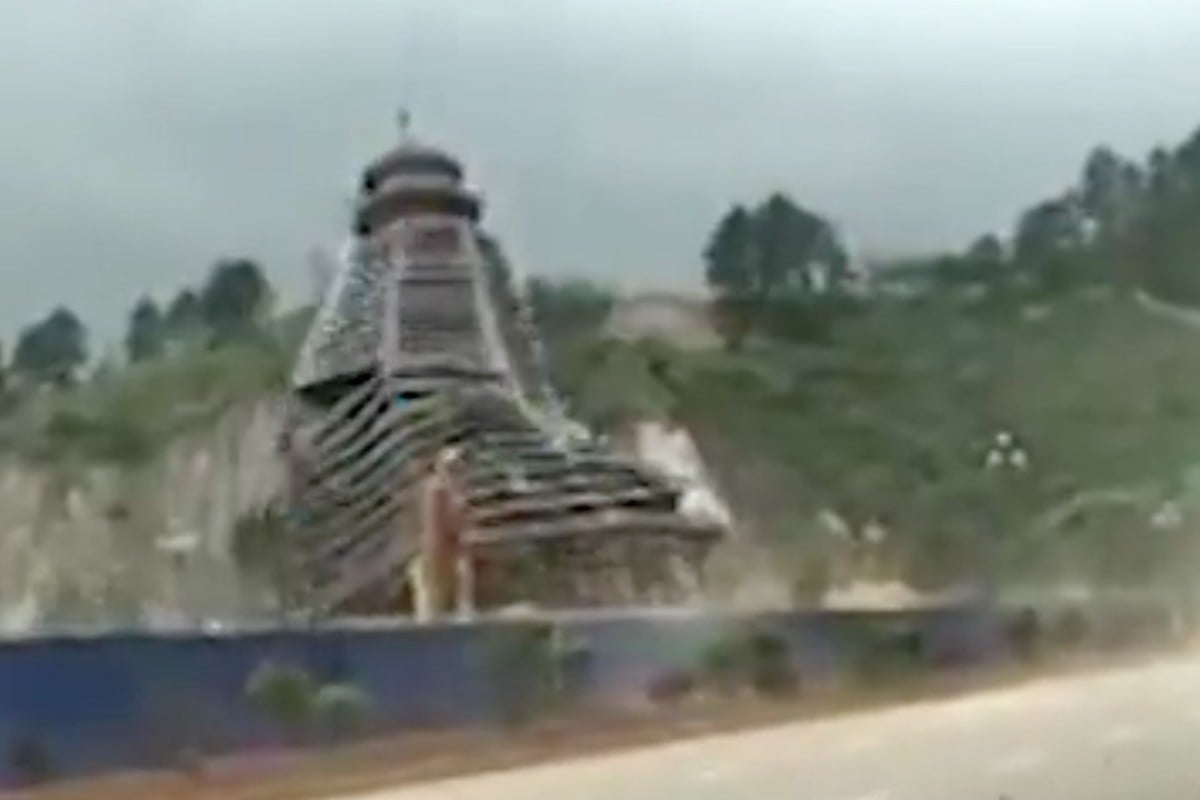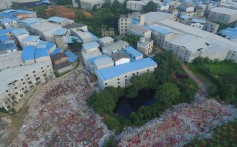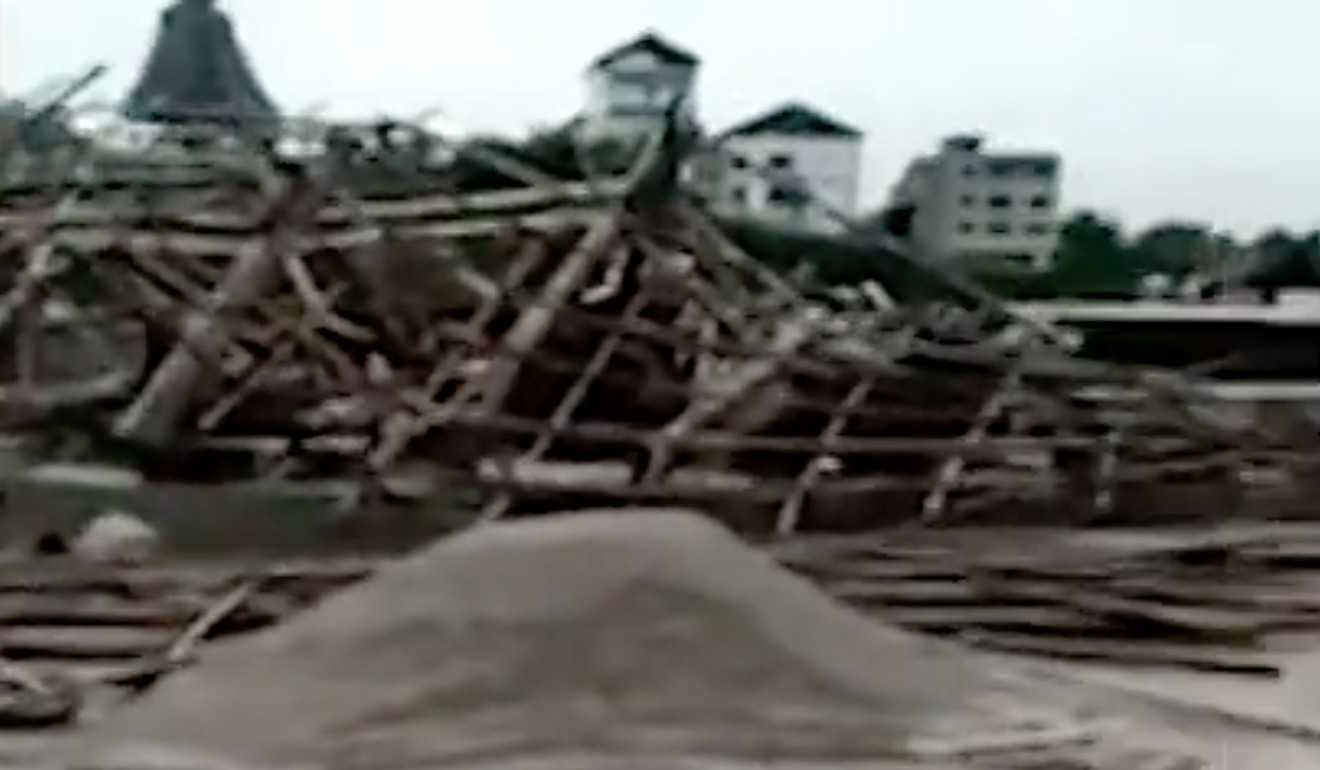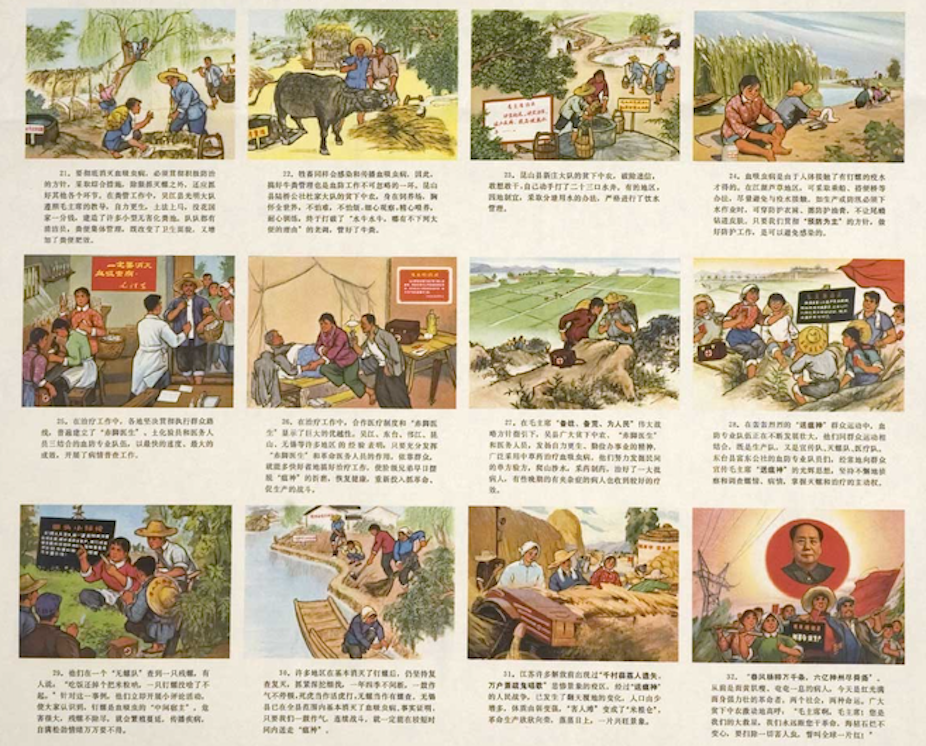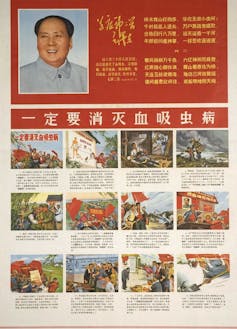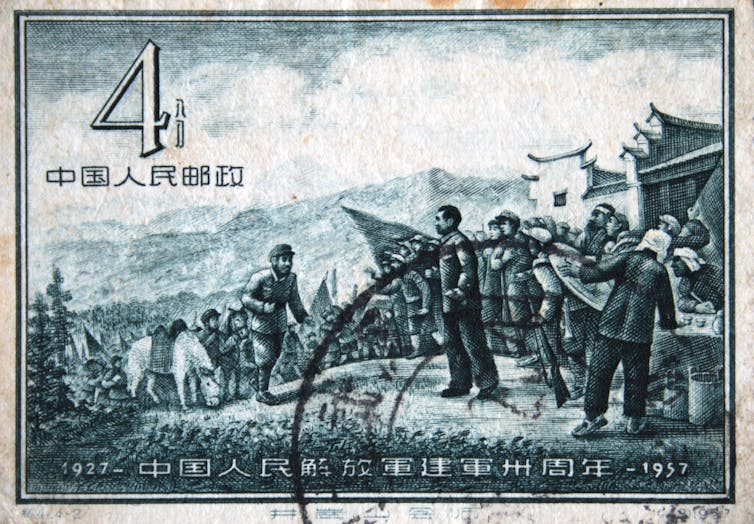- Joined
- Jun 27, 2018
- Messages
- 31,515
- Points
- 113
Commentary: Why China's social credit system gets thumbs-up from citizens
Many Chinese people think that the new social credit system will combat a nationwide crisis of trust, says an expert.
From penalising irresponsible dog owners to blacklisting dissenters, critics have warned China's social credit system enables authorities to define "desirable and undesirable behaviour". (File photo: AFP/CHANDAN KHANNA)
By Xinyuan Wang
31 Dec 2019 06:35AM(Updated: 31 Dec 2019 06:40AM)
Bookmark
LONDON: The Chinese social credit system has been given an unequivocally negative reception by the media in the West.
Set to be rolled out nationwide in 2020, the system has even been described by one journalist as China’s “most ambitious project in social engineering since the Cultural Revolution”.
Advertisement
On the surface, this reaction is understandable. Once the system is fully implemented, Chinese citizens will be given a social credit score based on their deeds. For example, failure to pay a court bill or playing loud music in public may cause a low score.
This score can dictate what rights people have. Those on the “blacklist” are prevented from buying plane or train tickets, for instance, as well as working as civil servants or in certain industries.
READ: Commentary: The end of the decade – how the world has become a less safe place
The fact that Big Data and facial recognition technology will be applied for the purpose of monitoring citizens raises various concerns. The scheme has even been described as a dystopian nightmare straight out of Black Mirror.
Advertisement
But what these accounts lack is a sense of how the system is perceived from within China, which turns out to be rather complicated.
My 16-month ethnographic study found that ordinary Chinese people perceive and accept the system differently – and most of them seem to welcome it.
The study, which I carried out over 2018 and 2019, examined the use of digital devices, such as smartphones, in Shanghai.
My study was designed to gain a holistic understanding of ordinary Chinese people’s daily lives, with a particular focus on digital engagement which at times included dealing with big issues such as state digital surveillance.
READ: Commentary: Is Huawei dangerous because it’s Chinese? What about Facebook?
Contrary to what many people in the West believe, in private and during informal talks among friends, ordinary Chinese are not shy or concerned about expressing their opinions about politics.
FEAR OF FRAUD
He was not alone in worrying about what is seen as an intensifying crisis of public morality. Another research participant – the mother of a newborn baby searching for a nanny – ended up installing secret cameras at home to help her choose a trustworthy one.
The people I spoke to seemed less concerned about giving up some privacy if it meant a significantly higher degree of security and certainty. Many perceived the new social credit system as a national project to boost public morality through fighting fraud and crime and combatting what is currently seen as a nationwide crisis of trust.
READ: Commentary: Rating citizens - can China’s social credit system fix its trust deficit?
China has experienced a rising number of fraud cases and scams, as well as major scandals in the food safety and pharmaceutical industries.
There is a widely held consensus that the punishment for these offences is not enough to deter re-offending, with people committing crimes in one province and setting up a business in another the next day with few consequences. Some believe the social credit system will remedy this through the blacklisting system.
Passengers outside the Beijing Railway Station. (File photo: Reuters/Damir Sagolj)
THE “CIVILISED” WEST
There is also another narrative which says that Western society is “civilised” because of a long-existing credit system. But this narrative is largely based on an imagined version of Western society. Many also assume that the idea of a social credit system in China was actually imported from the West.
Penyue, a retired teacher, complained about “uncivilised” deeds, such as spitting or littering in public and said: “Things in the West are better because they have a mature credit system, right?”
Some see it as the equivalent of the more established concept of “credit-worthiness” or getting a good “credit” score, but in the moral, as opposed to the financial sense.
There are many apocryphal stories linked to this myth, including one about a Chinese graduate who finds herself outside China in a Western city and – despite being qualified – cannot secure a job, because of her past record of fare dodging on trains (an offence which stayed on her credit record).
The point of the story is that in Western societies, people who break even minor rules suffer significant consequences. Stories like this use “the West” as a moral showcase of what a “civilised” society should be.
Students visiting booths during a job fair at Donghua University in Shanghai. (File photo: Reuters/Carlos Barria)
READ: Commentary: Actually, China’s social credit system isn’t the first
These stories may be false, but they are reflections of a commonly held belief that these problems were created by individualism and modernity in China and that the West dealt with the transition to modernity more effectively.
China’s own transition from an agricultural collective society (where people always knew who they were dealing with) to a modern one characterised by reliance on strangers has led people to believe that navigating this requires guidance.
THE SKY IS WATCHING
The erosion of mutual trust is also attributed to Mao Zedong’s Cultural Revolution, a turbulent period characterised by everyone denouncing everyone else, including friends and family. So citizens see a need for mechanisms that enable people to take full responsibility for, and be judged by, their deeds.
Chinese citizens have also tended to view life itself as credit and often refer to an old saying: “People are doing things, and the sky is watching.” This means that whatever one does, there is always a record of their deeds in the sky.
READ: Civilising China? A contentious social credit system moves boldly forward
One can earn points by doing good deeds, but these can also be easily squandered through bad ones.
I am not trying to adjudicate whether it is appropriate for modern China to play the role of the sky. But it is important to appreciate how things are understood within Chinese society and why attitudes there might be quite different from what people in the West might assume.
Xinyuan Wang is a research associate in the Department of Anthropology at UCL. This article first appeared on The Conversation.
Source: CNA/el(sl)
Many Chinese people think that the new social credit system will combat a nationwide crisis of trust, says an expert.
From penalising irresponsible dog owners to blacklisting dissenters, critics have warned China's social credit system enables authorities to define "desirable and undesirable behaviour". (File photo: AFP/CHANDAN KHANNA)
By Xinyuan Wang
31 Dec 2019 06:35AM(Updated: 31 Dec 2019 06:40AM)
Bookmark
LONDON: The Chinese social credit system has been given an unequivocally negative reception by the media in the West.
Set to be rolled out nationwide in 2020, the system has even been described by one journalist as China’s “most ambitious project in social engineering since the Cultural Revolution”.
Advertisement
On the surface, this reaction is understandable. Once the system is fully implemented, Chinese citizens will be given a social credit score based on their deeds. For example, failure to pay a court bill or playing loud music in public may cause a low score.
This score can dictate what rights people have. Those on the “blacklist” are prevented from buying plane or train tickets, for instance, as well as working as civil servants or in certain industries.
READ: Commentary: The end of the decade – how the world has become a less safe place
The fact that Big Data and facial recognition technology will be applied for the purpose of monitoring citizens raises various concerns. The scheme has even been described as a dystopian nightmare straight out of Black Mirror.
Advertisement
But what these accounts lack is a sense of how the system is perceived from within China, which turns out to be rather complicated.
My 16-month ethnographic study found that ordinary Chinese people perceive and accept the system differently – and most of them seem to welcome it.
The study, which I carried out over 2018 and 2019, examined the use of digital devices, such as smartphones, in Shanghai.
My study was designed to gain a holistic understanding of ordinary Chinese people’s daily lives, with a particular focus on digital engagement which at times included dealing with big issues such as state digital surveillance.
READ: Commentary: Is Huawei dangerous because it’s Chinese? What about Facebook?
Contrary to what many people in the West believe, in private and during informal talks among friends, ordinary Chinese are not shy or concerned about expressing their opinions about politics.
FEAR OF FRAUD
These are the words of Mr Zhu, a man in his 40s. He was explaining his reluctance to let his mother use a smartphone as she may fall prey to online scammers.Living in China … you have to be always on guard against others as pits of fraud are everywhere.
He was not alone in worrying about what is seen as an intensifying crisis of public morality. Another research participant – the mother of a newborn baby searching for a nanny – ended up installing secret cameras at home to help her choose a trustworthy one.
The people I spoke to seemed less concerned about giving up some privacy if it meant a significantly higher degree of security and certainty. Many perceived the new social credit system as a national project to boost public morality through fighting fraud and crime and combatting what is currently seen as a nationwide crisis of trust.
READ: Commentary: Rating citizens - can China’s social credit system fix its trust deficit?
China has experienced a rising number of fraud cases and scams, as well as major scandals in the food safety and pharmaceutical industries.
There is a widely held consensus that the punishment for these offences is not enough to deter re-offending, with people committing crimes in one province and setting up a business in another the next day with few consequences. Some believe the social credit system will remedy this through the blacklisting system.
Passengers outside the Beijing Railway Station. (File photo: Reuters/Damir Sagolj)
THE “CIVILISED” WEST
There is also another narrative which says that Western society is “civilised” because of a long-existing credit system. But this narrative is largely based on an imagined version of Western society. Many also assume that the idea of a social credit system in China was actually imported from the West.
Penyue, a retired teacher, complained about “uncivilised” deeds, such as spitting or littering in public and said: “Things in the West are better because they have a mature credit system, right?”
Some see it as the equivalent of the more established concept of “credit-worthiness” or getting a good “credit” score, but in the moral, as opposed to the financial sense.
There are many apocryphal stories linked to this myth, including one about a Chinese graduate who finds herself outside China in a Western city and – despite being qualified – cannot secure a job, because of her past record of fare dodging on trains (an offence which stayed on her credit record).
The point of the story is that in Western societies, people who break even minor rules suffer significant consequences. Stories like this use “the West” as a moral showcase of what a “civilised” society should be.
Students visiting booths during a job fair at Donghua University in Shanghai. (File photo: Reuters/Carlos Barria)
READ: Commentary: Actually, China’s social credit system isn’t the first
These stories may be false, but they are reflections of a commonly held belief that these problems were created by individualism and modernity in China and that the West dealt with the transition to modernity more effectively.
China’s own transition from an agricultural collective society (where people always knew who they were dealing with) to a modern one characterised by reliance on strangers has led people to believe that navigating this requires guidance.
THE SKY IS WATCHING
The erosion of mutual trust is also attributed to Mao Zedong’s Cultural Revolution, a turbulent period characterised by everyone denouncing everyone else, including friends and family. So citizens see a need for mechanisms that enable people to take full responsibility for, and be judged by, their deeds.
Chinese citizens have also tended to view life itself as credit and often refer to an old saying: “People are doing things, and the sky is watching.” This means that whatever one does, there is always a record of their deeds in the sky.
READ: Civilising China? A contentious social credit system moves boldly forward
One can earn points by doing good deeds, but these can also be easily squandered through bad ones.
I am not trying to adjudicate whether it is appropriate for modern China to play the role of the sky. But it is important to appreciate how things are understood within Chinese society and why attitudes there might be quite different from what people in the West might assume.
Xinyuan Wang is a research associate in the Department of Anthropology at UCL. This article first appeared on The Conversation.
Source: CNA/el(sl)

 PHOTO: Viewers of a Chinese documentary were staggered at the sight of so much cash, which can weigh up to three tons. (Supplied: CCTV)
PHOTO: Viewers of a Chinese documentary were staggered at the sight of so much cash, which can weigh up to three tons. (Supplied: CCTV) PHOTO: Mr Lai was a top official in China's financial sector. (Supplied: CCTV)
PHOTO: Mr Lai was a top official in China's financial sector. (Supplied: CCTV) PHOTO: Mr Lai said he didn't spend a cent of the $42 million in his cabinets. (Supplied: CCTV)
PHOTO: Mr Lai said he didn't spend a cent of the $42 million in his cabinets. (Supplied: CCTV) PHOTO: Mr Lai was in possession of gold, luxury cars and massive houses. (Supplied: CCTV)
PHOTO: Mr Lai was in possession of gold, luxury cars and massive houses. (Supplied: CCTV) PHOTO: Chinese President Xi Jinping pledged to crack down on "tigers and flies" in his signature anti-corruption campaign. (ABC News: Pixabay/Graphic by Jarrod Fankhauser)
PHOTO: Chinese President Xi Jinping pledged to crack down on "tigers and flies" in his signature anti-corruption campaign. (ABC News: Pixabay/Graphic by Jarrod Fankhauser)
 PHOTO: The Communist Party is said to have almost 90 million members. (ABC News: Jarrod Fankhauser)
PHOTO: The Communist Party is said to have almost 90 million members. (ABC News: Jarrod Fankhauser)



